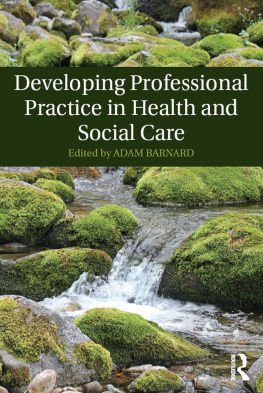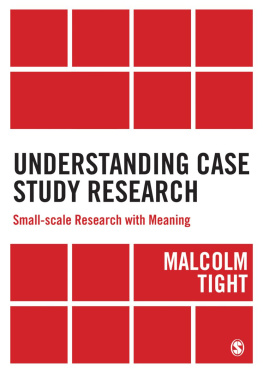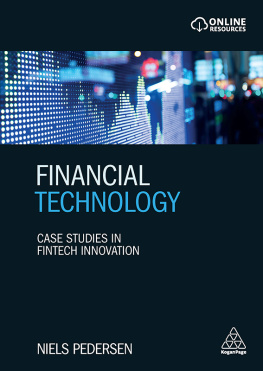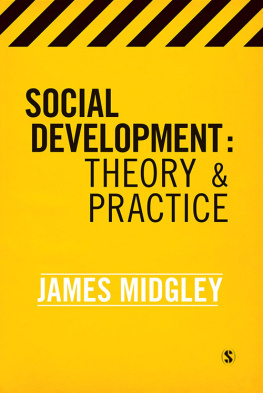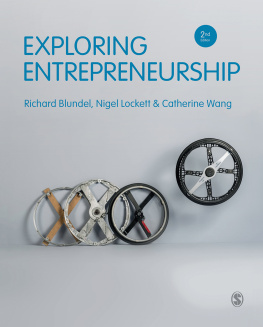Ken Banks - Social Entrepreneurship and Innovation: International Case Studies and Practice
Here you can read online Ken Banks - Social Entrepreneurship and Innovation: International Case Studies and Practice full text of the book (entire story) in english for free. Download pdf and epub, get meaning, cover and reviews about this ebook. year: 2016, publisher: Kogan Page, genre: Home and family. Description of the work, (preface) as well as reviews are available. Best literature library LitArk.com created for fans of good reading and offers a wide selection of genres:
Romance novel
Science fiction
Adventure
Detective
Science
History
Home and family
Prose
Art
Politics
Computer
Non-fiction
Religion
Business
Children
Humor
Choose a favorite category and find really read worthwhile books. Enjoy immersion in the world of imagination, feel the emotions of the characters or learn something new for yourself, make an fascinating discovery.

- Book:Social Entrepreneurship and Innovation: International Case Studies and Practice
- Author:
- Publisher:Kogan Page
- Genre:
- Year:2016
- Rating:4 / 5
- Favourites:Add to favourites
- Your mark:
- 80
- 1
- 2
- 3
- 4
- 5
Social Entrepreneurship and Innovation: International Case Studies and Practice: summary, description and annotation
We offer to read an annotation, description, summary or preface (depends on what the author of the book "Social Entrepreneurship and Innovation: International Case Studies and Practice" wrote himself). If you haven't found the necessary information about the book — write in the comments, we will try to find it.
Ken Banks: author's other books
Who wrote Social Entrepreneurship and Innovation: International Case Studies and Practice? Find out the surname, the name of the author of the book and a list of all author's works by series.
Social Entrepreneurship and Innovation: International Case Studies and Practice — read online for free the complete book (whole text) full work
Below is the text of the book, divided by pages. System saving the place of the last page read, allows you to conveniently read the book "Social Entrepreneurship and Innovation: International Case Studies and Practice" online for free, without having to search again every time where you left off. Put a bookmark, and you can go to the page where you finished reading at any time.
Font size:
Interval:
Bookmark:
Ken Banks, Founder of kiwanja.net, devotes himself to the application of mobile technology for positive social and environmental change, and has spent the past two decades working on projects in Africa. His early research resulted in the development of FrontlineSMS, an award-winning text message communication system today powering thousands of social change projects in over one hundred and seventy countries around the world.
Ken graduated from Sussex University with honours in Social Anthropology with Development Studies, was awarded a Stanford University Reuters Digital Vision Fellowship in 2006 and was named a Pop!Tech Social Innovation Fellow in 2008. In 2009 he was named a Laureate of the Tech Awards, an international awards programme which honours innovators from around the world who are applying technology to benefit humanity. He was named a National Geographic Emerging Explorer in May 2010 and an Ashoka Fellow in 2011, and was the recipient of the 2011 Pizzigati Prize for Software in the Public Interest. That summer he won the Curry Stone Design Prize for his pioneering work with FrontlineSMS, and was selected as a member of the UK Prime Ministers delegation to Africa. In 2012 the Cambridge business community presented Ken with a Special Achievement Award for his work as a social entrepreneur. Later that year he was made a Fellow of the Royal Society of Arts. In 2013 he was nominated for the TED Prize, and in 2015 he was invited to RMIT University in Melbourne, Australia, as a Visiting Fellow.
Ken represents Sussex University as their Ambassador for International Development, and is a founding member of the Digital Advisory Board of British Governments Department for International Development. In late 2015 Ken was appointed CARE Internationals first Entrepreneur in Residence. In addition to his own work, Ken mentors early-stage entrepreneurs through Pop!Tech and the Unreasonable Institute, and more seasoned entrepreneurs in the Ashoka network.
When hes not working, Ken spends much of his time being bossed around by his young son, Henry, and twins Madeleine and Oliver.
The two weeks obstetrician Laura Stachel spent in a Nigerian state hospital made her lifes mission clear. She was looking at why maternal mortality was so high in Nigeria 1 in 23 women died in their reproductive years from pregnancy-related complications and was stunned by what she witnessed. Most expectant mothers arrived at the hospital with severe complications. But the hospitals sporadic power supply meant deliveries were conducted in near-darkness, hospital messengers couldnt locate doctors, haemorrhaging women couldnt receive blood transfusions, and emergency surgeries were postponed or cancelled. Women and infants were dying from conditions routinely treated in the United States.
To Laura, it was unacceptable that women and children were dying in hospitals simply because of a lack of electricity. Together with her husband, solar educator Hal Aronson, she launched We Care Solar Womens Emergency Communication and Reliable Electricity. Their initial goal was to improve conditions in one hospital. But when surrounding clinics requested solar power for their labour rooms, We Care Solar needed a scalable solution.
Laura returned to Nigeria with portable solar electric kits tucked in her suitcase: efficient LED lights, walkie-talkies, and robust electronics powering medical lighting and mobile communication. Media attention spurred international requests for these Solar Suitcases.
Laura and Hal initially assembled Solar Suitcases with volunteers and financed the deployments with small donations. To meet growing demand, Laura built a core team and a broad network of partnerships to tackle regional deployments of Solar Suitcases. Today, We Care Solar delivers Solar Suitcases to first mile health centres to increase survival prospects for expectant mothers and their newborns. They have distributed more than 1,500 Solar Suitcases and spearheaded large projects in several countries in Africa and Asia, driven by their conviction that no woman should die giving life.
In my obstetrical practice in the United States, I loved being a part of the birth process, and considered it a privilege to be included in the intimacy of childbirth. It was my duty to support and empower the women I cared for. During labour, I often imagined an ancestral line of women who had given birth, each bearing the next generation, leading to this moment in time.
It wasnt until I spent time in the darkened maternity unit of a Nigerian hospital that I began to struggle deeply with the complexity of what is medically known as maternal mortality women dying in childbirth. For most pregnant women, the idea is an anachronism. But in the developing world, particularly in sub-Saharan Africa, death from complications of childbirth happens hundreds of times a day.
As an obstetrician, I am trained to solve problems in pregnancy and labour. I analyse what I see and chart a course of action. But the problems I confronted on my first trip to Africa the erratic electricity, surgical delays because of poor lighting and lack of mobile communication, the scarcity of medical instruments, the inadequate staffing and limited training were symptoms of a systemic failure. Maternal care was in dire straits for reasons far beyond any medical techniques I could offer. Poverty, lack of infrastructure, gender inequity, illiteracy and politics all conspired against the health and survival of pregnant women. Within the hospital, lack of reliable electricity stood out as a major obstacle to providing effective maternal care.
I never expected to be a social innovator in the developing world, let alone an advocate for solar energy for maternal health care. But as I witnessed women struggling to survive childbirth in Nigeria, and health workers trying their best to provide care in darkened maternity wards, I knew I couldnt turn my back on this problem.
My first passion in life was music and dance. At the age of 17, I entered Oberlin Conservatory and College to study for a career as a concert pianist and modern dancer. I devoted myself to practice, spending eight hours a day in the music conservatory and dance studio.
In my sophomore year, my doctor discovered an irregularity with my ovaries. Without surgery, he couldnt discern whether this was cancerous or not. As I was wheeled into the operating room for diagnostic surgery, my doctor informed me, If it is cancer, youll wake up with a big bandage and all your reproductive organs will have been removed. If it is benign, youll only have a small bandage.
In the recovery room, I reached for my abdomen before opening my eyes. A small bandage. I hadnt lost my ovaries. But the surgery prompted a lot of questions. So many, in fact, that my gynaecologist quipped, If you have so many questions, why dont you become a doctor?
It was a thought that had never occurred to me, but the idea resonated. Medicine would allow me to blend traits from my father (a scientist) and my mother (a clinical social worker). In my junior year, I left the familiarity of music and dance studios and enrolled in my first science classes. Medicine was a far cry from piano and dance, but the discipline I had developed in my artistic pursuits proved to be helpful in my classes. I studied alongside pre-med students who understood formulas and concepts that were absolutely foreign to me. It was a struggle, but I persisted.
My interest in medicine and healthcare deepened. I took an active role in womens health issues on the Oberlin campus. I became a volunteer peer counsellor at the college Sexual Information Center, co-taught a course on the History and Politics of Womens Health Care, organized campus-wide health education events, and worked with the Oberlin College Health Plan Board to expand student access to reproductive health services. These initial activities in health policy and education were immensely formative. An idea took shape in my mind to become a physician who would have the power to make changes within the health care system.
Font size:
Interval:
Bookmark:
Similar books «Social Entrepreneurship and Innovation: International Case Studies and Practice»
Look at similar books to Social Entrepreneurship and Innovation: International Case Studies and Practice. We have selected literature similar in name and meaning in the hope of providing readers with more options to find new, interesting, not yet read works.
Discussion, reviews of the book Social Entrepreneurship and Innovation: International Case Studies and Practice and just readers' own opinions. Leave your comments, write what you think about the work, its meaning or the main characters. Specify what exactly you liked and what you didn't like, and why you think so.

